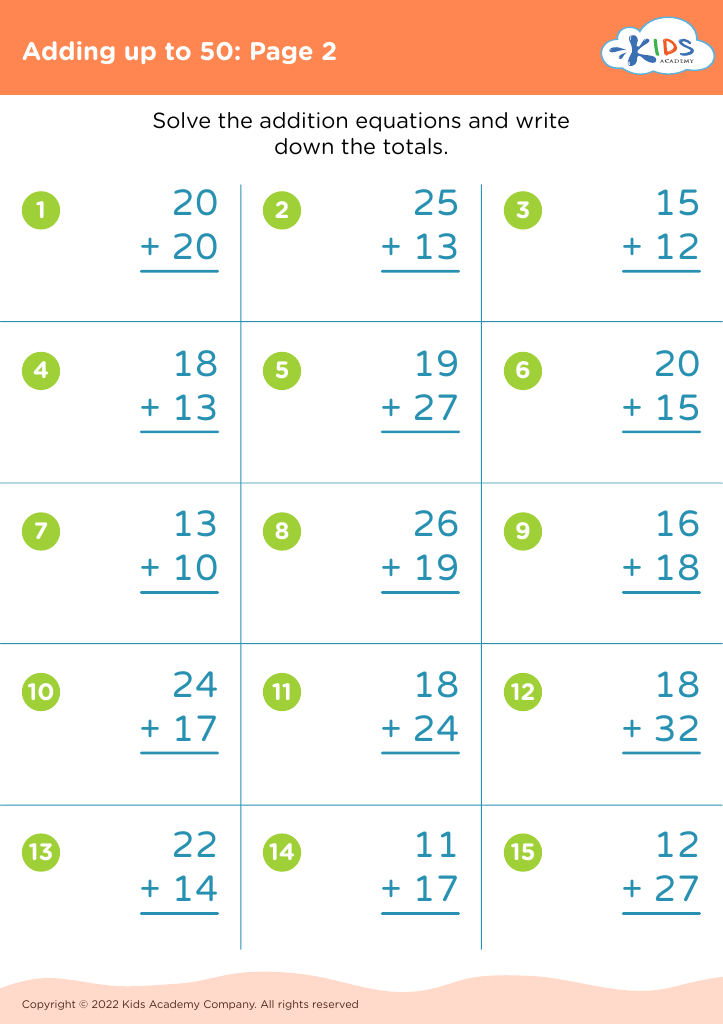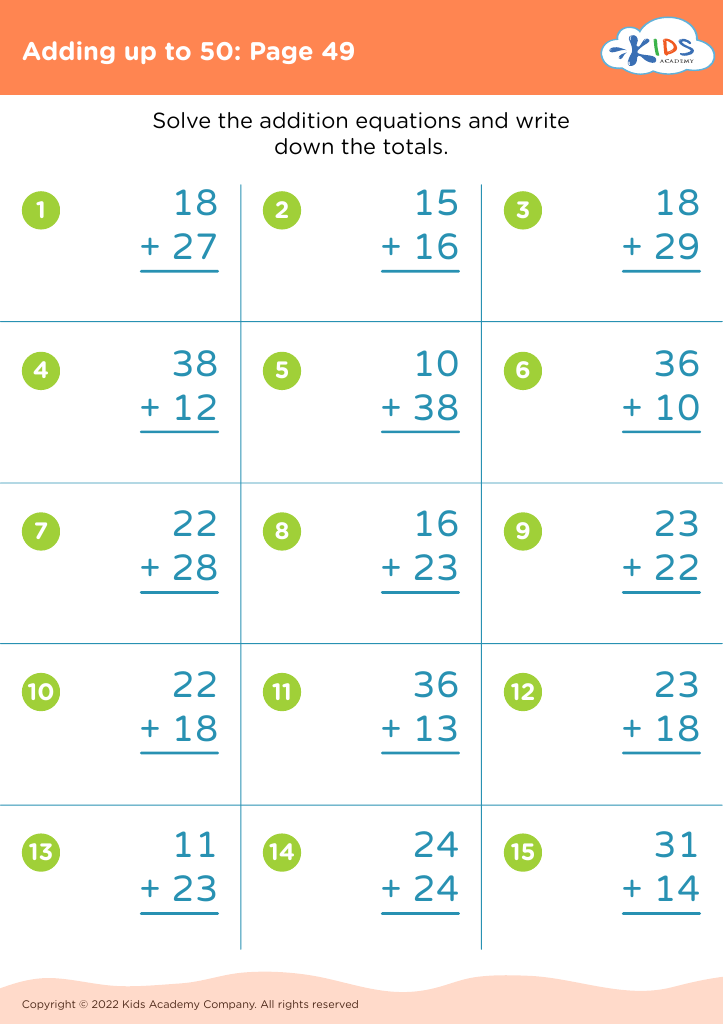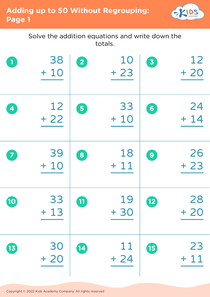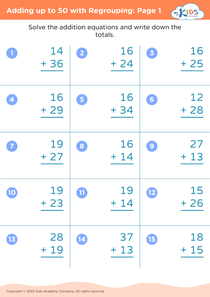Improving math skills Adding up to 50 Misc Worksheets for Ages 5-8
5 filtered results
-
From - To
Boost your child's math skills with our collection of "Adding Up to 50 Miscellaneous Worksheets," designed specifically for ages 5-8. These engaging and interactive worksheets offer a fun and effective way for young learners to practice addition, develop number recognition, and enhance problem-solving abilities. With a variety of activities tailored to different learning styles, children will enjoy working at their own pace while building confidence in their math abilities. Whether you're a teacher or a parent, these resources are perfect for reinforcing math concepts in a playful manner. Start cultivating a love for math today with our methods!
Improving math skills, especially adding up to 50, is vital for children aged 5-8 because it forms the foundation for future mathematical understanding. At this early stage, children are developing critical cognitive and problem-solving skills. Mastering basic addition not only boosts their confidence but also enhances their ability to tackle more complex math concepts as they progress in school.
Parents and teachers should care about this development for several reasons. Firstly, strong addition skills are essential for everyday life, supporting tasks such as budgeting, shopping, and measuring. When children feel comfortable with addition, they are more likely to engage positively with math, reducing anxiety and resistance toward the subject.
Secondly, establishing a solid math foundation can close educational gaps and promote equity in learning. Ensuring that children can add efficiently and accurately helps them keep pace with their peers, fostering a sense of belonging in the classroom. Lastly, math skills are interconnected with literacy and critical thinking, all necessary for holistic academic success.
By prioritizing the development of addition skills up to 50, parents and teachers not only prepare children for higher-level math but also encourage a lifelong appreciation for learning and numeracy.



















